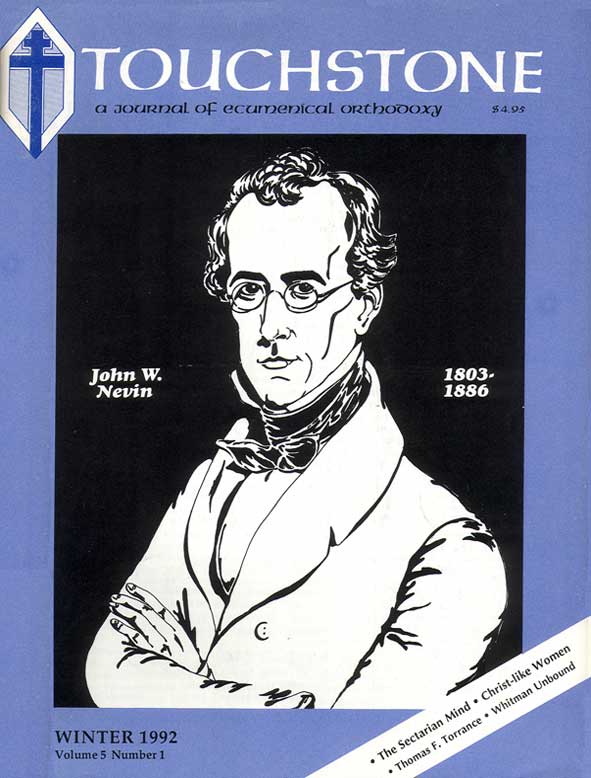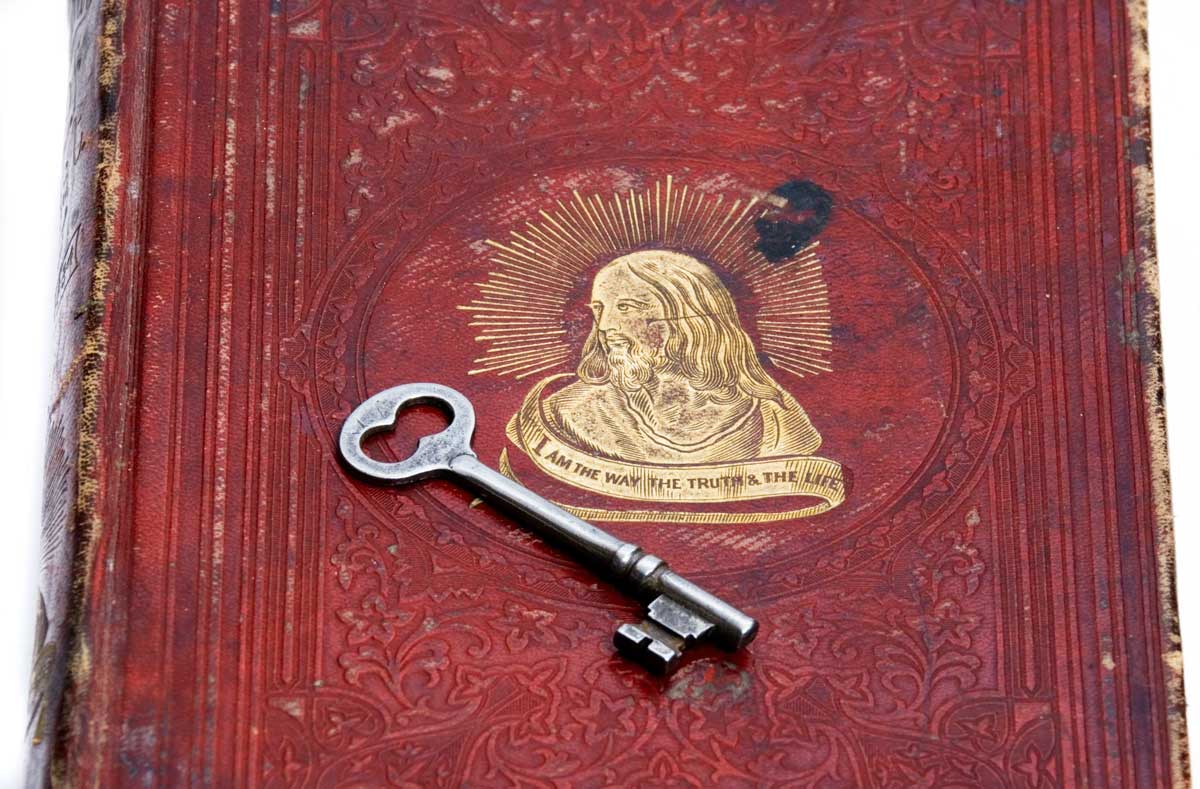Smoking His Own Breath
Walt Whitman & the Dead End Poets
by Steven Faulkner
An essay in Time magazine (July 22, 1991) in praise of Henry Miller quoted him as saying that the poet speaks “not with intellect alone, but with intellect inebriated by nectar.” And Miller is right. The poet speaks with mind and emotion, too, moved by some powerful and sublime dynamic. Thus have the fine wines of poetry ever been carefully fermented. We may ask, however, with what strong waters is Henry Miller inebriated? In Mr. Miller’s case it seems that he is drunk with himself. And as the Time essayist Pico Iyer insightfully says of Miller: “like Whitman, his fellow rhapsodist of Brooklyn, he sang only of himself . . . found in the self everything he needed.” Then follows a quote from Miller: “If we have not found heaven within, it is certainty we will not find it without.” Caveat lector! This poetic egocentrism taken very far leads to the death of poetry. Poets following Whitman have, with some notable exceptions, sung too much of themselves, breathed too deeply, to use Whitman’s phrase, of “The smoke of my own breath.” A poet may be high on self, drunk with self, but unless he discovers beauty, goodness, and truth beyond the self, others will grow weary of the drunken braggadocio and stop their ears.
I focus on Walt Whitman because of his seminal influence in American poetry. For us, he was the pioneer of a genre and in him we may see the portents of evils to come. Whitman himself, however, had high hopes for American poetry: “Of all the nations the United States with veins full of poetical stuff most needs poets and will doubtless have the greatest and use them the greatest.” It seems strange to modern American ears to hear him predict that “Their Presidents shall not be their common referee so much as their poets shall.” How many today can even name a working American poet? Of course there is Vanilla Ice, D. J. Qwik, or the Candyman, whose “rap juba” beat jars everything within a block of some passing Camaro. But that is poetry gone ninety-nine percent primitive and sensual; intellect succumbing to the epileptic rhythms. The very “names” of those poets connote the quality of their songs, songs de-noted of melody, deranging the mind of that quiet attention necessary to pleasures of the intellect. How are the mighty hopes fallen!
Respiration Inspiration
Whitman envisioned an America shaped by a new Homer or a new Virgil—of course, he was his own prime candidate. This grand new poet of the Republic, this Muse of Democracy, “is a seer . . . the others are as good as he, only he sees it and they do not. He is not one of the chorus . . . he does not stop for any regulation . . . he is the president of regulation” (the ellipses are Whitman’s). No one could ever accuse Whitman of excessive modesty. This soul of the “greatest poet” has “that measureless pride which consists in never acknowledging any lessons but its own. But it has sympathy as measureless as its pride and the one balances the other. . . .” This American poet is pride’s pinnacle, but that is all right because his compassion is oceanic.
These are measurements fit for divinity so it should not surprise us that Whitman dispenses with priests of that other deity: “Their work is done. They may wait awhile . . . perhaps a generation or two, dropping off by degrees. A superior breed shall take their place. . . .”
And who fathers this breed? Need we ask?
I know I am august,
I do not trouble my spirit to vindicate itself or be understood,
I see that the elementary laws never apologize . . .
He is elemental, a primal law, in himself the patriarch of a new order. As for the deity, Whitman disdains even a curiosity about him. He says that he sees God in everything, but understands him not at all; therefore, why bother—though he does manage a patronizing aside:
Listener up there! what have you to confide to me?
Look in my face while I snuff the sidle of evening,
(Talk honestly, no one else hears you, and I stay only a minute longer.)
He must get on to more important things: “Nor do I understand who there can be more wonderful than myself.” Whitman had a deep sense of wonder when viewing his own body. He revered his body, rejoiced in it, reveled in its pleasures: swinging from saplings, swimming in the nude, scenting the air, hiking, loitering. He loved his blood, his brain, his sex. He sensed the mystery of it all and said that the seen somehow proved the unseen, that he had a soul as well as a body. Still, for him the body predominated. He will chant the “Square Deific,” but his deities are human characteristics rather than divine persons. His unseen soul seems animated by the body rather than the other way around.
Yet we may ask, is it not some higher part of man which gives him his freedom, his ability to make free choices? Is it not that immaterial aspiring intellect and that immortal spirit which sets man apart from animals and makes him a person rather than simply a material individual?
As it has already been stated, Whitman does recognize the existence of the soul, but this animating spirit, this physical life force is very much a thing of the earth. The deeper part of man which longs for something more than the heat of another body or the warmth of his own, that part of man which looks up at the stars and yearns for a higher, more transcendent, more spiritual light, for immortality, which thirsts for communion with the gods, all of this desire seems strangely atrophied in Whitman. He lacks the divine itch of the biblical wisdom which leads man toward a higher goal. (Phil. 3:14; 4:8) Whitman glories in his individuality, but fails to see that greater glory in man, what Jacques Maritain, following the Christian philosophers, distinguishes as the “person”:
the word Person is reserved for substances which possess that divine thing, the spirit, and are in consequence, each by itself, a world above the whole bodily order, a spiritual and moral world which, strictly speaking, is not a Part of this universe, and whose secret is hidden even from the natural perception of the angels. (20, Three Reformers)
Though Whitman’s person is earthbound, ironically his rebel soul longs for a greater freedom. He would break the bonds of “custom or precedent or authority that suits him not.” He would free himself from conventions and traditions. This child of the earth declares his inspiration to be his own respiration. He needs no Muse. He can dispense with all who labored before: poets and philosophers. He needs no God. All rational disputation with this mountainous ego he rules out: “Do I contradict myself? / Very well then I contradict myself, / (I am large, I contain multitudes.)”
This is the supreme individualist who sends his “barbaric yawp over the roofs of the world” and blesses us with “The sound of the belch’d words of [his] voice loos’d to the eddies of the wind.” We need not wonder that such blown burps play havoc with punctuation, meter, and rhyme. For Whitman is a free spirit, blowing where he listeth. Why should grammatical conventions restrict his sovereign pen? All poetry stretches language to make it sing its song. (Whitman was not as bad as some who followed, but still he can be so tedious in his liberty.) Among the endless phrases strung together in his 1855 preface to Leaves of Grass, he often preferred to do without commas. It takes a few minutes to get the hang of reading it, but it is not impossible. Of course he uses ellipses; they are a sort of capital comma. But then in his later Democratic Vistas the commas return with a vengeance. They come at you by the dozen. He is writing for the ages and he must not miss a thing; each noun requires six more, each adjective calls forth several more. He simply cannot find a period. He must stop at every step for full effect. There are forty-five commas in the last sentence of that treatise, not to mention a few semicolons and dashes at no extra charge. His poetry reads like his prose. The words are there—colorful words, sharp words, beautiful words; he has the eye of the poet and a love of the world and a love of language. But he has left the disciplines of the older poets and his song becomes hard to sing, not only because it lacks rhythm, but because of its ubiquitous prancing and promenading of self. The reader of Whitman may delight in his poet’s view of the cosmos, but should cringe at “Walt Whitman, a kosmos.”
Whitman is Whitman’s work of art. His whole work is self-portraiture and more. No longer is the artist representing the good he sees about him as an image of its Creator, but he himself has become both creator and creation. The artist has become the art.
Whitman said that the proof of a poet is that his country affectionately receives him. “There is no fear of mistake,” he wrote. If the poet is as good as the nation, the nation will surely receive him. But his grand hope of the poet as shaper and arbiter of a New Democracy failed.
Yet Whitman did have his influence and on more than punctuation. His individualism, his rejection of tradition produced a breed of artists who first followed and then went beyond him: no longer loving the world, its shapes and colors, but so individualistic that they could only yelp and yawp of their own esoteric feelings. Such individualism has sapped the life of American poetry; it has put poetry out of fashion for it can no longer be shared. This sort of individualism born of narcissism leads to narcissism, if anywhere, and today’s narcissists seem less inclined to belabor their intellects in disentangling words on a page, much less the words of some anxious, introspective soul who loves not their lives but only his own.
Old Poets
It was not always so. Men and women used to love poetry. Children loved poetry (and still do if they hear it). Common people wrote it, perhaps not well, but when they wished to express high moments or special loves, they tried poetry. Great poets were read not for their personalities but because their poems expressed love and beauty, sorrow and death, more effectively than their peers. The old poets pointed to the things they loved or feared or hated or regretted or delighted in, all of which could be quite personal, but they were not so much pointing to themselves as the proper object and end of their work. Many old painters and sculptors did not even sign their works. Medieval poems were almost always anonymous. These artists stood beneath the cosmos or knelt there in awe; they did not ordain themselves lords of the cosmos.
Because they valued what they saw, because they were moved emotionally, the old poets sought to set things down in a manner commensurate with their vision. They chose poetry because poetry gave them an opportunity to organize their thoughts and sing their song in a more beautifully moving way. Poetry is not just the recollection of some emotion, but the careful collecting of what is memorable and worthy into a rational and artistic form. It is an art for contemplation. “Beauty is essentially an object of intelligence,” says Jacques Maritain, but not intelligence divorced from the senses, for in poetry we love not only the thoughts, but the rhythms, rhymes, the sounds and visual delights; it is an art for listeners and speakers. So beauty falls in the realm of both the mind and the senses. So, too, art, Maritain says,
shapes a sensible matter in order to delight the spirit . . . to believe that paradise is not lost. It has the savor of the terrestrial paradise, because it restores, for a moment, the peace and the simultaneous delight of the intellect and the senses.
Whether their poetry blows the sweet winds of Eden or fiery blasts of hell or the common places of a domain between, the poets sought to share these mysteries in a way suitable to man, a being both sensual and rational. But whispering in those winds from Paradise, or wherever, came the old Edenic temptation: to leave off the tending of the garden and the praise of its Creator and to make oneself into a god, to make oneself the center of attention. And thus the poets began singing themselves.
The old poets were able to transcend this individualism. They spoke not of the limitless ego, but of the “infinity of being,” of mysteries seen in particular things, often very ordinary things. They rejoiced to tend the garden:
Here we come a-piping,
In Springtime and in May;
Green fruit a-ripening
And Winter fled away.
The Queen she sits upon the strand,
Fair as lily, white as wand;
Seven billows on the sea,
Horses riding fast and free,
And bells beyond the sand.(Anonymous)
However ordinary, the old poets’ concentration was on the thing itself. As Marion Montgomery put it, “Whatever man as maker manipulates requires of man, the made, a reverence for its being. From this creature—the created world—the artist borrows to build what J. R. R. Tolkien calls Secondary Creations, the poem or story. In doing so, the artist discovers a responsibility for a careful attention to the created world.” That world naturally includes the self; it includes the emotions of the poet.
T. S. Eliot, overreacting perhaps to the self-exaltation of the Romantic poets, said “The progress of an artist is a continual self-sacrifice, a continual extinction of personality.” “Poetry is not a turning loose of emotion, but an escape from emotion; it is not the expression of personality, but an escape from personality.” Surely Eliot goes too far here. One cannot detach the poem from the personality that wrote it nor from the emotions which gave it rise or attended the poet’s experience. The poet’s imagination, receiving inspiration from the created world, through rational labor brings a poem to birth. The child is substantially related to the mother. Nevertheless the child is not the mother; neither is the poem a mirror image of the poet. It is a created work, a work to which the poet has given herself. Here Eliot’s term self-sacrifice is useful. But although the poet is singing from the depths of his own experiences, thoughts, and emotions from his own self, still he is not singing of self. The creation he offers to the world is an expression of the cause that moved him. The poet strives to fashion a gift with “inspiration adorned,” with “language well-worked” (as is said of that first English poet St. Caedmon)—that the world might see why he was so moved. In Caedmon’s day they called such work “songcraft” not self-craft. Though subjectivity has always been inevitable, the old poets were more concerned to give proper praise to that which deserved praise or lament that which caused their grief.
C. S. Lewis predicted the destruction of a society that replaces proper praise with subjectivism. He wrote The Abolition of Man in response to a schoolbook in which the authors debunk praise as nothing but a description of one’s feelings. Lewis argues persuasively from Augustine, Aristotle, and Plato for ordo amoris, the ordinate condition of the affections in which every object is accorded that kind and degree of love which is appropriate to it.
There is a danger on both sides of the issue: debunking poetic expression as nothing but worthless sentimentality reduces man to what Lewis calls “the trousered ape who has never been able to conceive the Atlantic as anything more than so many million tons of cold salt water.” On the other side, understanding poetry as nothing but the exalted feelings of the poet leads to pure subjectivism—deified narcissism! In either case ordo amoris is wanting.
The old poets had feelings no doubt, intense feelings. But they were obliged to believe that their feelings were appropriate. “Silver sails all out of the west/ Under the silver moon” were worth noticing. They were not just so much yardage of canvas, nor were they just mere markers pointing to the state of the poet’s imagination. The wild cataract does “leap in glory”; the poet’s love is somehow “full of heavenly fire.” This is ordinate praise. The poet’s focus is upon the object. Emotion results, but emotion is not the only point.
If poetry is only the singing of the poet’s own passions, then why should the reader attend? One might argue as Whitman did that passions are universal and each reader then may share his passion. But for the reader or listener to share that passion, he must perceive the cause. Whitman knew this. The attraction of his poetry is precisely his often able expression of those causes. But the disconcerting thing—and this is key—is that the grass he sees must become “the flag of my disposition,” that the one thing remembered of a populous city was the woman “who detain’d me for love of me,” that the look of the Louisiana oak “rude, unbending, lusty, made me think of myself.” Can he think of nothing else?
The older poets found splendor in the grass and left it there. They saw strength in the oak and praised it. The poet did not offer the oak merely as a mirror of his own subjectivity. Some objective reality is the starting point—a reality into which the reader is able to enter through the poem. Again Jacques Maritain points us in the right direction, stating things perhaps more moderately than Eliot: “This essential disinterestedness of the poetic act means that egoism is the natural enemy of poetic activity.” He goes on to say: “The inspecting of self of modern times becomes a curse when it shifts the focus of the artist from the creative work ‘in the fire of spiritual communication,’ to man’s ‘self-centered ego, busy with self-interest and power’.”
Throughout the artistic community (or so I say throughout that conglomeration of independent artistic souls), this self-centered cult of self-expression, with all its tortured, tangled, inaccessible esoteric feelings, has driven out the love of the objective world and its mysteries. One can no longer judge a work of art as good or bad, for how can one judge another’s feelings? That rusted wrapping of steel strips about a plastic bottle is an expression of the artist’s soul. That incomprehensible jumble of words is a creation of the artist’s emotions. What can we say? Who are we to judge? Maybe he had a bad day. Maybe his wife left him. Probably so. We are ignorant of the cause of that miscarriage; we cannot judge the result. No wonder, then, that in this atomistic world, the reader, the beholder, falls back on a deconstructionist methodology to conjure up some personal meaning from the work of another’s inaccessible soul.
This placement of the poet above creation, this centering upon and swelling of the ego, did not begin with the Romantic poets. It is a noxious weed of long root. Neither was Walt Whitman the first father of this race. He was another child of a long line of individualists, though a very pivotal and prolific one.
Perhaps the rage of Self will self-consume in time. Perhaps a Christian poet somewhere, like the old cowherd Caedmon, will leave the beer party of his fellows and lay his limbs down in some musty animal shed and there hear, as Caedmon heard so long ago, a man standing beside him in a vision saying, “Caedmon, sing me something.” And Caedmon answered, “I know not how to sing anything; and for that reason I left this beer party and hither went, because I knew not how to sing.” But again he said, he that was speaking with Caedmon, “However you might sing.” Then Caedmon asked, “What should I sing?” Said he, “Sing me the Creation.” Then, perhaps, that poet will turn his eyes from himself and gaze upon all the works of God and see that indeed they are very good and that there is no end to them, that indeed they are a very “infinity of being” worthy of being sung forever. And like that other father of English poetry, Geoffrey Chaucer, perhaps he will have the humility to ascribe the good he sees and the good he sings to “oure Lord Jhesu Crist, of whom procedeth al wit and al goodnesse.”
Then may the poets offer themselves not as idols, but their works as icons, images representing a grander reality, and a good to be shared, to be held in common. Here is community and what is human. Then, we may hope, the common people who once chanted beside Caedmon or laughed with Chaucer or recited Shakespeare will drink deeply of that well, and inebriated with love, will take up poetry as a fit instrument of ordo amoris.
A country clergyman of England, of whose life we know little, heard that call and gave us this good example:
Hesperides
I sing of Brooks, of Blossomes, Birds, and Bowers:
of April, May, of June, and July-Flowers.
I sing of May-poles, Hock-carts, Wassails, Wakes,
Of Bride-grooms, Brides, and of their Bridall-cakes.
I write of Youth, of Love, and have Accesse
By these, to sing of cleanly-Wantonnesse.
I sing of Dewes, of Raines, and piece by piece
Of Balme, of Oyle, of Spice, and Amber-Greece.
I sing of Times trans-shifting; and I write
How Roses first came Red, and Lilies White:
I write of Groves, of Twilights, and I sing
The Court of Mab, and of the Fairie-King.
I write of Hell; I sing (and ever shall)
Of Heaven, and hope to have it after all.
(Robert Herrick) •
Steven Faulkner is a doctoral candidate in English at the University of Kansas and resides in Topeka, Kansas, with his wife, Joy, and their seven children.
Steven Faulkner teaches creative writing at Longwood University in southern Virginia. He is the author of Waterwalk: A Passage of Ghosts (2007) and Bitterroot: Echoes of Beauty and Loss (2016). Both books are memoirs of father-son journeys that followed the paths of missionary priests: Marquette (in Waterwalk) and De Smet (in Bitterroot).
subscription options
Order
Print/Online Subscription

Get six issues (one year) of Touchstone PLUS full online access including pdf downloads for only $39.95. That's only $3.34 per month!
Order
Online Only
Subscription

Get a one-year full-access subscription to the Touchstone online archives for only $19.95. That's only $1.66 per month!
bulk subscriptions
Order Touchstone subscriptions in bulk and save $10 per sub! Each subscription includes 6 issues of Touchstone plus full online access to touchstonemag.com—including archives, videos, and pdf downloads of recent issues for only $29.95 each! Great for churches or study groups.
Transactions will be processed on a secure server.
more from the online archives
calling all readers
Please Donate
"There are magazines worth reading but few worth saving . . . Touchstone is just such a magazine."
—Alice von Hildebrand
"Here we do not concede one square millimeter of territory to falsehood, folly, contemporary sentimentality, or fashion. We speak the truth, and let God be our judge. . . . Touchstone is the one committedly Christian conservative journal."
—Anthony Esolen, Touchstone senior editor









